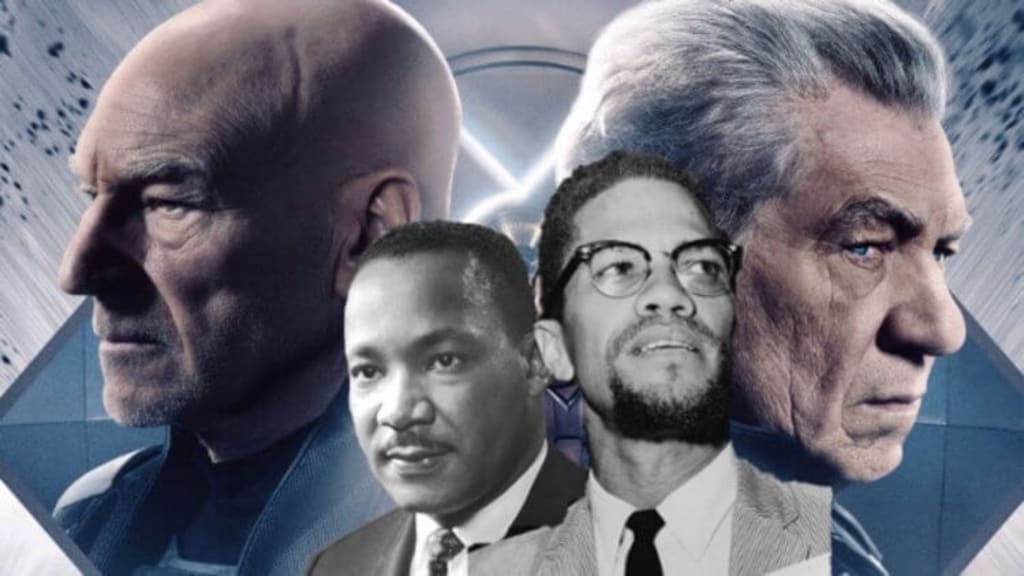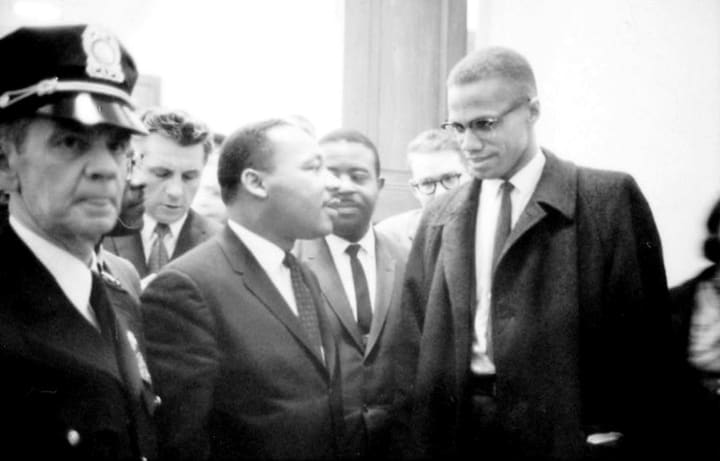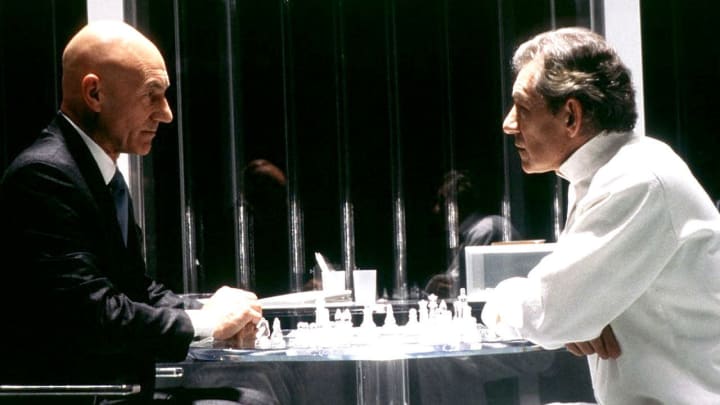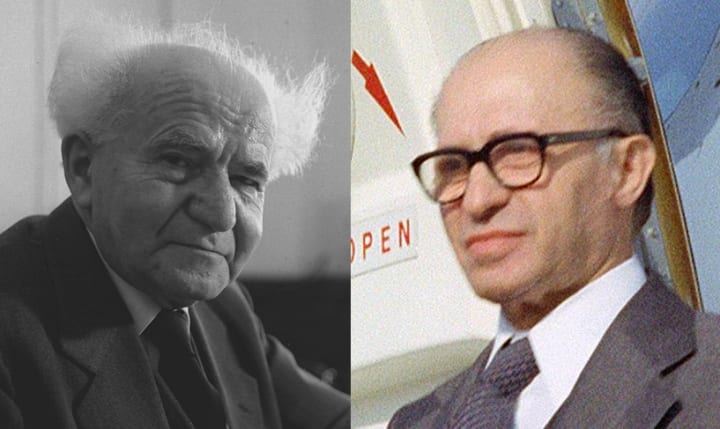Were Professor X and Magneto Based On Martin Luther King Jr. And Malcolm X?
X-Men was inspired by the Civil Rights Movement but were its main characters truly representative of the movement’s key figures?

Created in 1963 by Stan Lee and Jack Kirby, the X-Men franchise has remained part of today’s popular culture. Dealing with themes of bigotry, prejudice and discrimination, X-Men was heavily based on the Civil Rights Movement.
The struggle of the mutants in X-Men was essentially that of the African Americans during the movement. A minority group that faced discrimination from the dominant majority simply because they were born different.
The mutants were divided into two main factions: The X-Men led by Professor X and the Brotherhood of Mutants led by Magneto. While both men sought to end the discrimination against mutants, their methods were different. This instantly drew parallels between the two characters and key figures in the Civil Rights Movement namely Martin Luther King Jr. and Malcolm X.
Let’s take a closer look at how these characters were presented and analyze the similarities and differences to their real world counterparts. Upon closer inspection we can see how well-founded these comparisons are.
Similarities

Let’s start off with the similarities between Professor X and Martin Luther King Jr.
The leader of the X-Men, Charles Xavier was a mutant who sought to end the discrimination of his kind by finding ways to peacefully co-exist with humanity. The founder of a school that educated and housed mutants, Xavier taught his students to use their abilities for good.
Like Martin Luther King Jr., Xavier believed that equality could only be ended through education, dialogue and non-violent methods. He ensured that the mutants under his charge were educated and willing to integrate with the rest of society. Just like Martin Luther King Jr Xavier felt that violence would only serve to further people.
These similarities do not end at just their goals. Both Xavier and MLK suffered the same criticisms from other factions within their movement. Coming from more comfortable backgrounds, Xavier was wealthy while MLK’s father was influential in the community. These advantages were often used by their rivals to criticize their “softer” stance.
This is also further reflected in the comics. The same way MLK had the platform to encourage his supporters to take more drastic action but chose to stick to dialogue and peaceful gatherings, Xavier had the power to manipulate minds but preferred for people to genuinely open their hearts instead.
Thus, Professor X and Martin Luther King Jr. can both be seen as learned men who sought to achieve their dreams by the most peaceful means possible. They were two people who believed that an end to discrimination would eventually benefit everyone in the end.
Now, let’s take a look at the similarities between Magneto and Malcolm X.
The leader of the Brotherhood of Mutants, Magneto sought to end the discrimination against his kind by any means necessary. Like Malcolm X, Magneto preferred a “fire against fire” approach that was not limited to just peaceful conversation.
Both men experienced the very worst of bigotry and discrimination from a young age and this shaped their outlook on how to seek freedom for their kind. Just as Malcolm X did in real life, Magneto appealed to the most disenfranchised and hardest hit people and encouraged them to rise against the oppression.
Perhaps the most striking similarity between Magneto and Malcolm X was their opposition to integration. Both believed that the only way true freedom could be achieved for their kind was if they were completely separated from their oppressors. In the comics, Magneto achieved a degree of separation from the rest of humanity through his mutant sanctuary, Genosha.
As it was in real life, both Magneto and Malcolm X are seen as taking the more hard-line approach to their cause. Having experienced prejudice and discrimination all their lives, neither man wanted anything further to do with the people that oppressed them.
It is clear that there are enough similarities between the characters and these historical figures to warrant at least some comparisons. However, let us balance this against a few differences to get a more clear picture.
Differences

Perhaps the most striking difference between the characters and their real life counterparts is the fact that both Professor X and Magneto are white. On top of that, actual racism is rarely present in X-Men, with the humans vs mutants narrative dominating the series.
Thus, it is very difficult to authentically take the struggles of a particular group of people and have a character who is far different from that group experience them. Skin color aside, the individual differences between Professor X and MLK and Magneto and Malcolm X respectively are quite apparent too.
Compared to MLK, Professor X was in fact far softer in his approach. While Professor X sought to make mutants more respectable to humans and protected humans from more extreme mutants, MLK did not go that far. Although he preached non-violence, he did not defend white people from other black people nor did he want African Americans to change in order to “fit in” better in the eyes of white people.
On the other hand, while Magneto and Malcolm X did prefer separation over integration, Magneto took it a step further and sought to dominate humanity. Although Malcolm X was not shy about encouraging people to resort to violence when necessary, he did not advocate ending discrimination against African Americans by becoming the oppressor instead.
Thus, it can be seen that while Professor X and Magneto do share similar ideologies to MLK and Malcolm X respectively, they are not exclusively the same. In fact, they have just as many traits that set them apart from their real life counterparts as well.
Conclusion

Before we criticize the creators of X-Men for not properly representing such important historical figures, it should be noted that neither Stan Lee nor Jack Kirby ever mentioned explicitly basing Professor X or Magneto after MLK or Malcolm X.
In fact X-Men, although inspired by The Civil Rights Movement, was more of a metaphor for oppression and discrimination in general as opposed to a commentary on that particular movement itself.
Chris Claremont, a longtime X-Men writer who began taking charge of the franchise was also aware of these comparisons and sought to dispel them by instead comparing Xavier and Magneto to former Israeli leaders David Ben-Gurion and Menachem Begin respectively.
Claremont also reinvented Magneto as a sympathetic character with the backstory that he was a Holocaust survivor. At the same time, stories were also written that highlighted Professor X’s own struggles and frustrations with his more tolerant approach.
Perhaps, it would be better not to compare these characters to any specific historical figure but rather see them as the embodiment of the pros and cons of taking a harder or softer stance in the fight against discrimination. At the end of the day, that is the spirit of X-Men.
About the Creator
Isa Nan
Written accounts of life, death and everything in between
Enjoyed the story? Support the Creator.
Subscribe for free to receive all their stories in your feed. You could also pledge your support or give them a one-off tip, letting them know you appreciate their work.






Comments
There are no comments for this story
Be the first to respond and start the conversation.